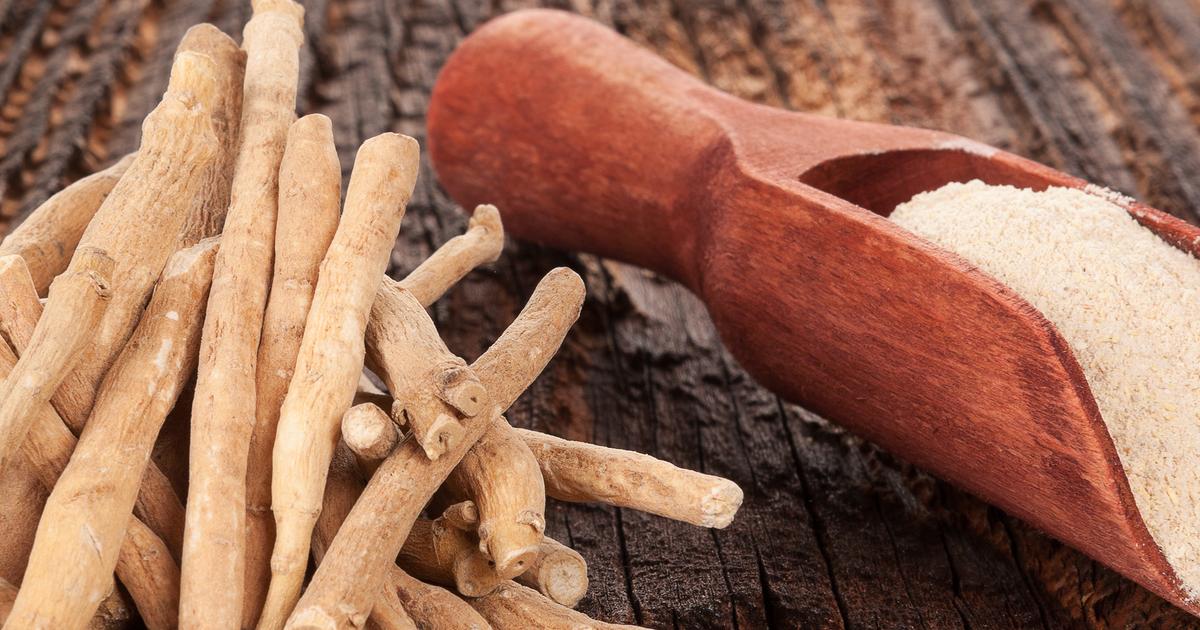What Is Ashwagandha?
Ashwagandha is a shrub of the evergreen variant that grows in the Middle East, India, and parts of Africa. The fruit and roots of the shrub have both been utilized for centuries for multiple medicinal purposes. As of the current day, ashwagandha is marketed and sold in the United States as a herbal health supplement. Ashwagandha is not regulated by the United States Food and Drug Administration and does not have to meet the same standards as food producers or pharmaceutical companies. While the health benefits and healing properties of ashwagandha have been studied to an extent, the herb is not well known in the general population. Those who are aware of ashwagandha may refer to it as Indian ginseng. Ashwagandha has also been referred to as winter cherry, but this name can become confusing because it also describes a different plant called Physalis alkekengi.
Get familiar with how ashwagandha works, its benefits, risks, and more now.
How It Works

Ashwagandha is known to be an effective nerve tonic, meaning it reduces the activity of an individual's nerves. Any nerve tonic helps restore normal activity to an individual's nerves. Ashwagandha is thought to work by allowing the body to properly adapt to numerous different physical and emotional stressors that produce adverse symptoms. Ashwagandha is thought to produce an action that closely mimics the activity of a critical neurotransmitter referred to as gamma-aminobutyric acid (GABA), which helps block impulses from moving from one nerve to the next in the brain. In addition to these mechanisms, ashwagandha is thought to help protect an individual's immune system function, ensuring it is operating at an optimal level. Ashwagandha is known to combat the natural processes of inflammation in the body tissues and helps reduce the concentration of lipids in an individual's bloodstream. The medicinal chemicals that produce such actions contained within ashwagandha include alkaloids, fatty acids, amino acids, withanolides, choline, and numerous sugar compounds.
Read about how ashwagandha is taken next.
Ways It's Taken

The most classic way that ashwagandha is known to be taken is through a fine powder that has been mixed or blended with ghee or honey. Another method of administration of ashwagandha is through the consumption of a hot cup of tea or milk with a teaspoon of finely powdered ashwagandha. Another popular method used to take ashwagandha is through a capsule. Root extract from the ashwagandha plant may be placed and taken in a capsule as a supplement at a dosage of 450 to 500 milligrams per day. Ashwagandha powder may also be placed into a capsule and taken as a supplement. Many individuals use ashwagandha to make cookies and other baked goods as a way to take the supplement. Another method that can be used to take ashwagandha is by putting a teaspoon of the fine ashwagandha powder in a smoothie before blending. Some individuals prefer to take ashwagandha as a tincture placed into a capsule or by swallowing it like liquid medication. Ashwagandha is often mixed in with different products used for the skin to help remedy conditions like psoriasis and acne.
Keep reading to discover the reported health benefits of ashwagandha next.
Reported Health Benefits

Individuals have taken ashwagandha for centuries for the relief of numerous different ailments. Some of the most common symptoms individuals take ashwagandha for include stress, poor memory, low libido, anxiety problems, joint pain, fatigue, sluggishness, difficulty concentrating, problems sleeping, frequent bouts of illness, low mental and physical endurance, and neurological abnormalities. Ashwagandha has been utilized to help with a diagnosis of failure to thrive in children. Ashwagandha is reported to be beneficial for patients who have problems with frequent constipation, goiter, intestinal parasites, hormone imbalances, general weakness, disability in old age, insomnia, nerve conditions, high cholesterol, sexual dysfunction, tumors, and difficulty managing blood sugar. Ashwagandha is taken by individuals who may have problems with learning, reaction time, and memory. It has also been used in many individuals to help with conditions and diseases that cause the progressive degeneration of brain cells and cognitive function decline.
Get familiar with the potential side effects of ashwagandha next.
Potential Side Effects

Individuals report ashwagandha is well-tolerated when it is used in reasonable and proper doses, even though there has been no concrete evidence from clinical studies to support this. Just like any other health or nutritional supplement, ashwagandha has a slight risk of causing adverse side effects in individuals who take it. The most prevalent adverse side effects reported by individuals who have taken ashwagandha include nausea, gastritis, and headaches. Pregnant women are advised to not take ashwagandha because there is evidence indicating it may induce premature labor and cause early delivery. There is also evidence that ashwagandha can cause miscarriages. It is not known whether ashwagandha is safe to use while breastfeeding. Ashwagandha is known to cause a decrease in blood sugar, which may interfere with the mechanism of some types of drugs used to treat diabetes. It has also been reported to cause a drop in blood pressure that may be dangerous for individuals who already have a condition that causes hypotension.
Read about the medication interactions next.
Medication Interactions

Only a few different interactions between ashwagandha and other medications have been identified because little research has been conducted. It has been reported that ashwagandha can cause problems with the way certain medications used for the treatment of thyroid conditions work. There is evidence showing ashwagandha can counteract the action or mechanism of medications used with autoimmune conditions that are meant to reduce the actions of the immune system. Furthermore, ashwagandha is known to produce depressive effects on an individual's central nervous system, making drugs like anesthesia dangerous to use with it. Manufacturers of Ayurvedic herbs and supplements are not required to adhere to rules set by the United States Food and Drug Administration, including those that require warnings associated with potential medication interactions. Ayurvedic herbs and supplements like ashwagandha are do not have to meet the same standards food produces and pharmaceutical companies have to meet.